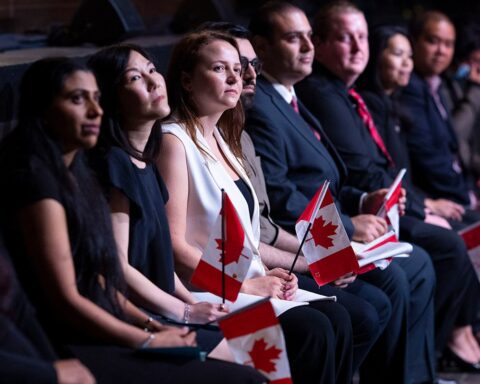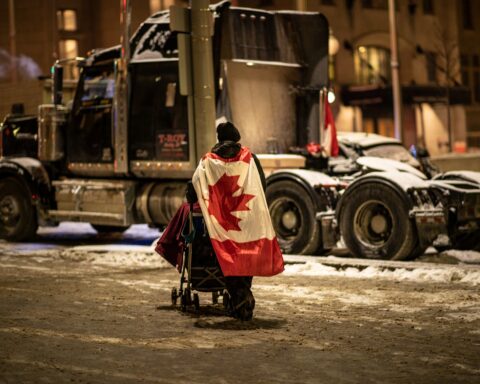We seem to be having a hard time figuring out what to call our struggle with terrorism. Leaving aside the belief, held by me and others, that framing counter terrorism in terms of war is a bad idea, it is clear that we keep changing our minds about what we are really involved in.
After the clumsy misstep by U.S. President George W. Bush to label it a “Crusade”, we moved from the ‘war on terrorism’ to the ‘long war’ to the ‘global struggle against violent extremism (GSAVE) to ‘countering violent extremism’. The latest iteration, which I read today in a New York Times op-ed, has me worried, as much for its pessimistic tone as its psychological effect on all of us.
According to Brian Castner, a formal explosives disposal specialist in the U.S. Army, some in that country’s military have begun to refer to the fight against terrorism as the ‘Forever War’. This is not a good development.
War imagery
Let’s think about this phrase for a moment. Forever. That’s a long time. And, what is worse, is that forever has no end. In other words, we will be fighting terrorism and terrorists in a war with no termination. No victory. No truce. No surrender. No resolution. Just war, interminable war.
In some ways we should have known this from the start. Wars against abstract or common nouns don’t end because these nouns don’t reflect tangible entities. Terrorism is no more a defined object than are drugs, poverty and cancer. These ‘things’ are either tactics (terrorism), social ills (drugs, poverty) or natural phenomena (cancer). They don’t have armies – yes Islamic State has a pseudo army with quasi soldiers – or uniforms or well-delineated structures. You might as well declare war on mist. Yet we frame all kinds of social causes as war.
Don’t get me wrong, I do see a role for the military in counter terrorism measures, even if I disagree with the war metaphor. But that role has to be constrained and carefully deployed. Against IS or Boko Haram in northern Nigeria there is space for the army. After all, however, this fight is for security intelligence and law enforcement agencies on the one hand and civil society on the other. The former are tasked with taking care of those who wish to do us harm, while the latter look after addressing the conditions under which people turn to terrorism so that, in the end, fewer make that decision.
Accepting death and destruction
We must stop using war imagery when we talk about terrorism. Aside from the reasons just cited, if those in the armed services are seeing this as the ‘forever war’ what does this mean? If means that a hopelessness has entered into the minds of those we send to confront terrorists.
Hopelessness not only breeds depression but it serves as an obstacle to other possibilities. If we convince ourselves that this war is eternal and that we will have to keep killing terrorists, iteration after iteration (Al Qaeda, IS in Iraq, IS, Al Shabaab, AQAP …) we consign ourselves to a non-solution. I can think of little more futile than accepting death and destruction as the only way forward. There has to be a better way – I think a lot of people are involved in alternative approaches already – and we have to find it and implement it now.
The First World War was once called the ‘war to end all wars’. We all know how that phrase ended up. We need to get smart about terrorism before the Forever War becomes a self-fulfilling prophecy.
For our own sakes as well as those of future generations.
Phil Gurski worked for more than three decades in Canadian intelligence, including 15 at Canadian Security Intelligence Service (CSIS), and is the author of the Threat from Within and Western Foreign Fighters (Rowan and Littlefield).
Phil Gurski is a former terrorism analyst at the Canadian Security Intelligence Service (CSIS). He specializes in radicalization and homegrown Al Qaeda/Islamic State/Islamist-inspired extremism and has published several books, including the forthcoming When Religions Kill: how extremists justify violence through faith.” He is a member of New Canadian Media’s board of directors.





